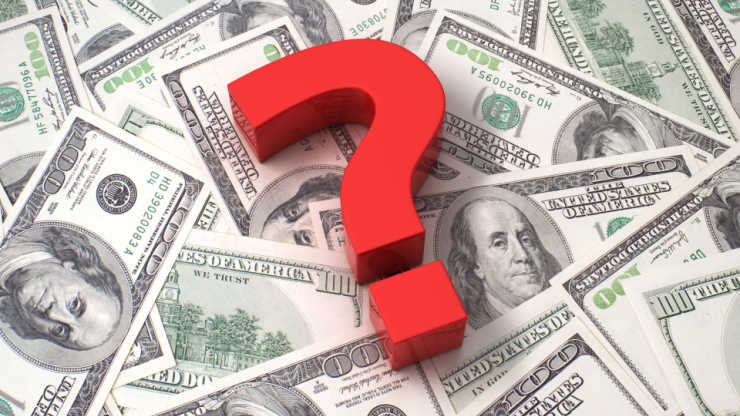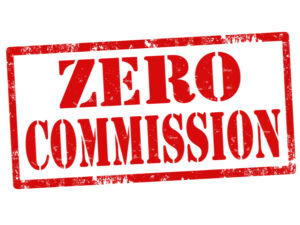Remember, Charles Schwab operates as a bank too. One of the reasons I like doing business with Fidelity Investments is because it’s not a bank and because it is privately owned. It’s not under the gun to meet Wall Street’s quarterly estimates. It’s a family business.
Justin Baer and Charley Grant report on Schwab’s current predicament in The Wall Street Journal, writing:
The downfall of SVB Financial Group, the parent of Silicon Valley Bank, has sent investors rushing to look for other banks that have also lost deposits and are sitting on paper losses on their bondholdings. Schwab’s shares are down 31% since March 8, the day SVB spooked bank investors by announcing an emergency capital raise.
Schwab “mismanaged the balance sheet,” said Porter Collins, portfolio manager at Seawolf Capital, who has a short position on Schwab, meaning he is betting the shares will decline. “The problem is they made a big rate bet, and it’s gone the wrong way on them.”
Schwab isn’t SVB. For one thing, SVB was focused on the cash-burning world of venture capital, which hit a down cycle last year. Many of Schwab’s deposit customers are individuals who come to Schwab largely for its investing platforms.
SVB also encouraged customers to keep all their money there. About 90% of its deposits were above the cap for government insurance, making customers prone to flight at the first sign of trouble. At Schwab, on the other hand, less than 20% of deposits are above the cap.
But SVB, Schwab and numerous other banks invested a big slug of that cash in long-term bonds. Then the Federal Reserve raised interest rates faster and more sharply than many of those firms, including Schwab, expected. Those increases slashed the value of the banks’ bondholdings, such that selling them now would result in significant losses.
In Schwab’s case, the firm had more than $11 billion in unrealized losses on its hold-to-maturity bond portfolio at the end of 2022, exceeding its tangible common equity of just over $6 billion. Most of those holdings were government-backed mortgage bonds, which are generally considered safe. The company also owns Treasurys, asset-backed securities, corporate debt and certificates of deposit, according to a regulatory filing.
The question now is what price Schwab could have to pay for that decision.
Schwab executives expected the Fed would raise rates 0.75 percentage point in 2022. Instead the Fed raised them nearly six times as much, by 4.25 percentage points, in a continuing battle against the highest U.S. inflation in decades.
Action Line: When you want to talk, I’m here. Until then, click here to sign up for my free monthly Survive & Thrive letter.
P.S. The following was originally posted on October 8, 2019.
$0 Commissions: Charles Schwab Has Always Been About Charles Schwab
You may have seen that Charles Schwab has reduced its commissions to $0.
But when you dig a little deeper you realize there’s a catch. As it turns out it’s free but Schwab gets to use your cash, lend it out, and pocket-the interest you could have made.
“Schwab doesn’t use money-market funds or short-term Treasury funds, which could earn nearly 2% at recent rates,” explains Jason Zweig at the WSJ. “Instead, it shunts the cash into Charles Schwab Bank, which currently pays 0.55% on the money—and then turns around and lends it out at roughly 2%.”
Clearly you can see Schwab isn’t working for free.
It’s also my belief that Schwab’s discounted brokerage/commissions have done more harm than good. The program entices investors to spin their money into oblivion following trading schemes rather than patience.
When I think of Charles Schwab, I don’t envision a family wealth management firm.
I don’t see a conservative, Prudent Man philosophy guiding the firm.
I see churning and burning.
Investing is not supposed to be exciting.
Investing is supposed to be boring (that is until you start seeing your account compound into some serious money).
Schwab has always seemed to me to be too slick for his own good and enjoying the golf course far too often for a money manager.
Take a trip down memory lane. Have you ever lost money in stocks?
If you traded commodities or penny stocks in the 70s and 80s, you know exactly what I’m talking about.
“Can’t lose” trading books gather dust on bookshelves, not interest on interest.
At the end of the day, Schwab is a salesman and a billionaire, not an investor.
Doesn’t have a good ring to it does it?
Today the bets are being laid by Schwab that robo, passive ETFs, and mutual funds are the future.
But these are models that are active management–someone decides how they work and what to put in them.
You know in your gut that someone is winning off your $0 trades.
E.J. Smith - Your Survival Guy
Latest posts by E.J. Smith - Your Survival Guy (see all)
- A Word on Stocks - July 26, 2024
- Is Vanguard Too Big? What’s Next? - July 26, 2024
- Boomer Candy? - July 26, 2024
- My BEST Insider’s Guide to Key West - July 26, 2024
- Having Fun Yet? Nasdaq Worst Day in Years - July 25, 2024
















